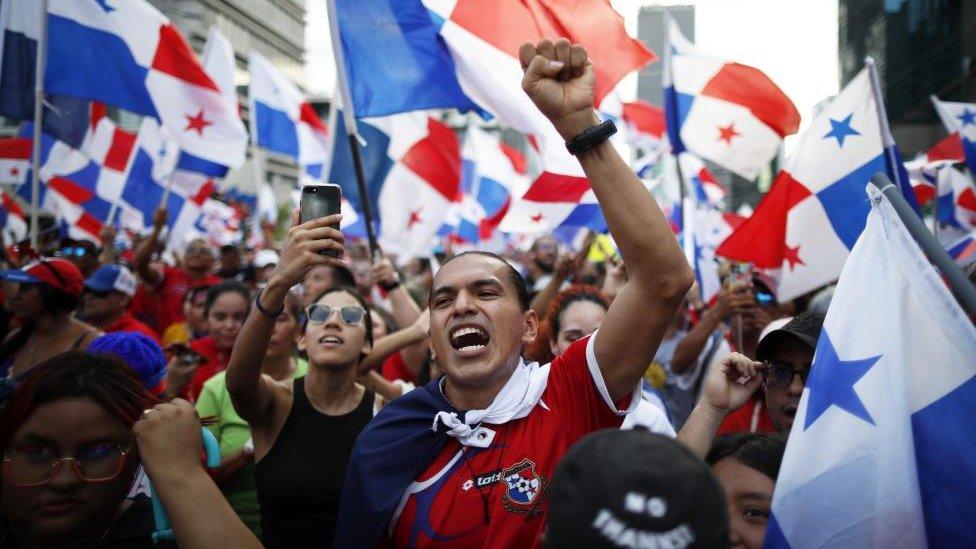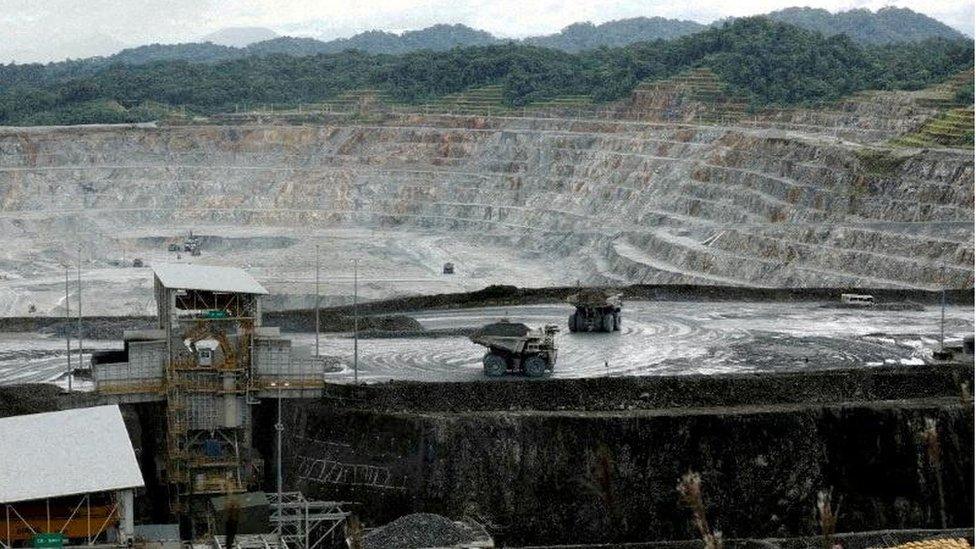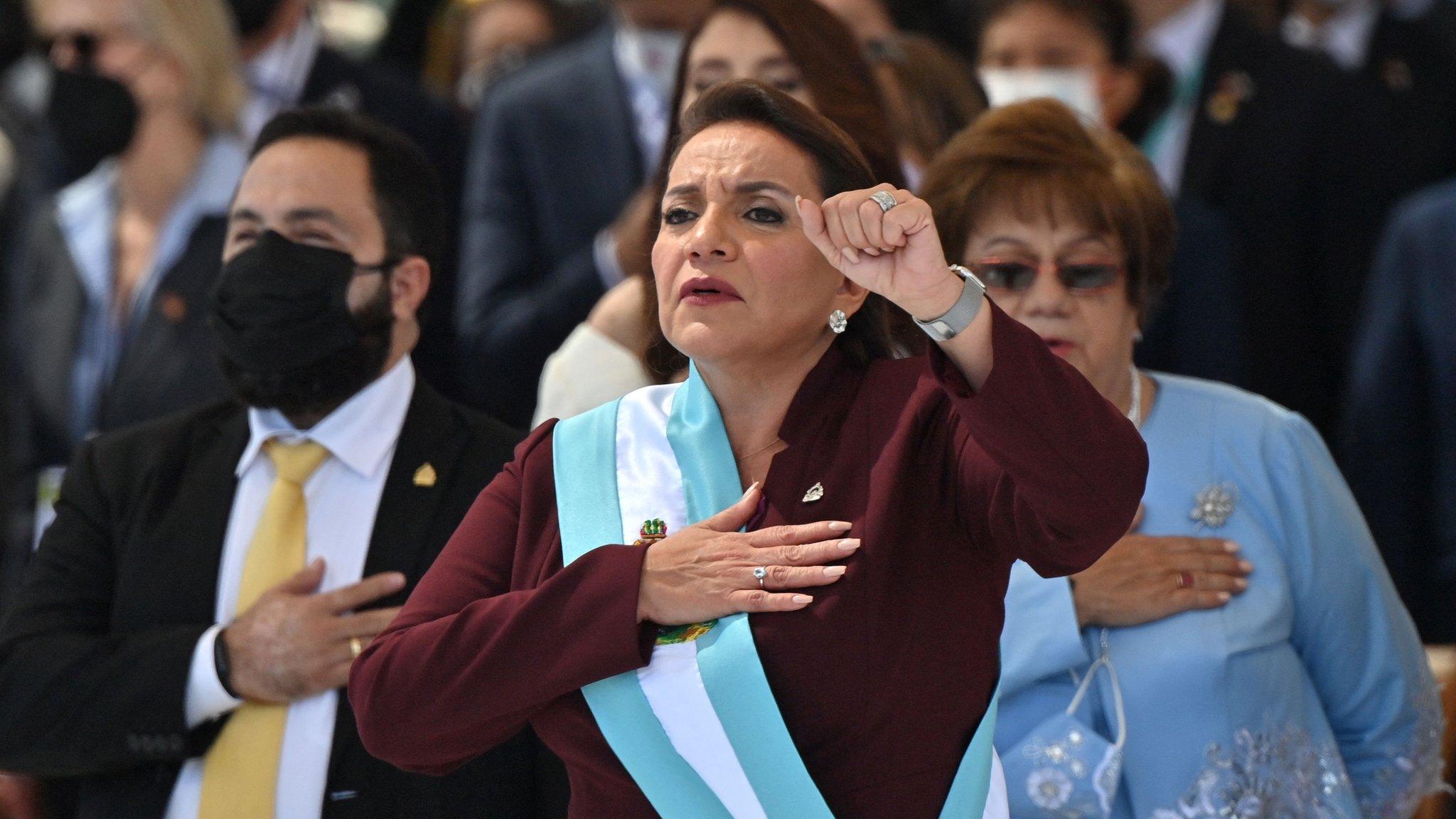Cobre Panamá: Panama orders controversial copper mine's closure
- Published

Protesters cheered as the unanimous ruling by the Supreme Court was announced
Panama has announced the closure of a controversial copper mine after the Supreme Court ruled that a 20-year concession granted to a Canadian firm to operate it was unconstitutional.
The decision has been welcomed by environmentalists who said the open-pit mine threatened water supplies.
Cobre Panamá is located in a biodiverse jungle area on Panama's Atlantic coast.
The government's renewal of its contract with First Quantum Minerals had triggered mass protests.
Environmental campaigners were joined by students, indigenous groups and labour activists.
While many took part in the protests because of their concerns for the environment and opposition to mining, others were opposed to the concession granted to First Quantum, arguing it favoured the Canadian miner and did not provide enough revenue for Panama.
Protesters blocked the Pan-American highway and other key roads, causing fuel and food shortages in some regions.
They also used boats to create a sea blockade, preventing crucial supplies from reaching the mine, eventually forcing First Quantum, Canada's largest copper producer, to suspend its operations last week.
Cobre Panamá, which has two open pits, a processing plant and its own port, is one of the largest copper mines to be opened in the past decade anywhere in the world.
It began producing copper in 2019, providing around 1% of the global copper output.
According to government figures, its proceeds accounted for 3.5% of Panama's GDP in 2021. The mine also employed 8,000 people directly and created indirect employment for tens of thousands more.
But it has had a troubled history from the start.
Environmentalists opposed the mine saying it caused destruction in a jungle area rich in biodiversity as well as depleting the water in the area.

The mine is located in Donoso, on Panama's Atlantic coast
But the recent mass protests were triggered in October when Panama's Congress passed a law which approved the new contract with First Quantum.
It was this law which the Supreme Court unanimously declared unconstitutional on Tuesday.
President Laurentino Cortizo said on X, formerly Twitter, that he would "abide by the decision of the Supreme Court".
He later announced in a televised address that his government would begin a "transition process" to shut down the mine in an "orderly and safe" fashion once it received formal notification from the court.
First Quantum said it respected Panamanian law and would comment further once it studied the details of the ruling.
The company added that its contract with the Panamanian government had been the result of a long and transparent negotiation process whose aim had been to mutually benefit both sides as well as guarantee the protection of the environment.
Environmental activist Raisa Banfield said the ruling was a result of different groups coming together in their opposition to the mine.
"Everyone did their part, those of us who knew about the environmental issue contributed, the lawyers, the farmers, our boatmen from Colon, our youth," she said.
Related topics
- Published1 March 2022
